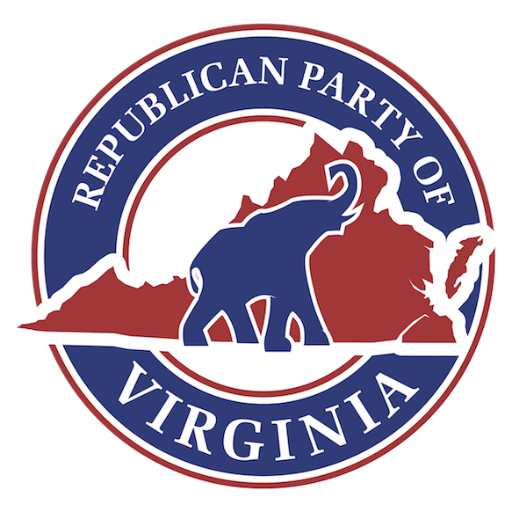Much digital ink has been spilled about the Virginia 97th House of Delegates District nomination process. As a result of actions taken at RPV headquarters, the Executive Committee, or rather half of its voting members, have called for a meeting on Thursday May 30, 2019. As Chairman of the 11th Congressional District Republican Committee I signed the call for the meeting. What follows are a series of facts and opinions as I see them. I am not a spokesperson for the other District Chairmen.
The Purpose of the Meeting
The purpose of the meeting is to reassert the roles that District Committees and the State Central Committee play in the executive functions of the Republican Party of Virginia. In this instance we have two problems: One is a fast and unqualified assertion by the Chairman and Executive Director of RPV that the 97th District Convention on May 4th, 2019 was invalid. The second is the assertion that the ruling of the First Congressional District Republican Committee (1CDRC) on May 20 has no force or effect until or unless it is appealed and confirmed by the SCC. Both of these items create significant jurisdictional problems within the Party Plan. The first issue circumvented the 1CDRC’s right to hear all appeals arising from the 97th Congressional District’s nominating process by stating the outcome before any contest or appeal had been made. The second directly undermines the authority of a District Committee in making a ruling after a deliberative process. In both instances a District Committee has been undermined in its role. Plan Art. IV. I find this particularly disturbing as a District Chairman.
What are the Roles of the SCC and Chairman in Running RPV?
Under the RPV party plan the Chairman is vested with significant powers to run the day-to-day operations of RPV. Plan Art. III § D.2. The State Central Committee “shall formulate and provide for the execution of such policies, plans and measures as it may deem conducive to the best interest of the party…” Plan Art. III § D.1. The SCC sets all of the policies and plans, and the RPV Chairman is responsible for making those things happen. In other words, major decisions are made by the SCC and minor decisions are made by the Chairman.
Where Does the Executive Committee Come in?
The Executive Committee (EC) “shall act for the State Central Committee when the latter is not in session…” Plan Art. III § E.1. In other words when a major decision has to be made and we cannot wait for the next SCC meeting or it is difficult to call an SCC meeting the Executive Committee is tasked with making major decisions. During my time on the SCC and EC (3 years) the EC has met before SCC meetings to privately and briefly discuss the state of the party. It was used once to update the EC via conference call on electoral strategy.
What is the EC, and What is it not?
The EC is made up of up to 28 people when fully filled and there are no people holding more than one role. What is important though is that only twelve people have voting power: the 11 District Chairmen and the RPV Chairman. Plan Art. III § E.1.a. The EC meets when called by the Chairman or by 1/3 of the voting members. Plan Art. III § E.1.c. In this instance, half of the voting members called for a meeting. The EC is subject to the SCC and the SCC can tell the EC to stop doing things or to do things differently when the SCC is next called for a meeting.
Why the EC and not the SCC?
The SCC is set to meet June 22, and requires 21 days’ notice with only one exception (that does not apply here, and for which we should hope never applies). Plan Art. VII § B.1. The Executive Committee only requires seven days’ notice. I should point out that based on my understanding far more than 1/3 of the SCC is willing to call a special meeting if necessary, but is still bound by the 21 day time frame. We have a current, valid ruling from the 1CDRC that has been declared invalid by edict, and a proposed firehouse primary on June 1.
What to expect for those attending:
The EC is not an “Official Committee” as defined by the RPV party plan. Plan Art. VII. This means that although you may know the time and place of the Committee meeting there is no presumption that it is an open meeting. Normally, we hold these meetings without public participation, although the attendance of third parties that have not been specially recognized is common in my experience. If you come to the meeting you may be told to leave and witness nothing. There is no duty to vote on the record. Those who have been in a meeting with me know that I will support an open meeting even when uncomfortable for those attending, but I doubt I will have the votes to open the meeting to the public.
Items the public can know now:
Both Scott Wyatt and Chris Peace have hired attorneys and sent letters detailing their positions to the whole SCC. No one has appealed the 1CDRC decision. There is not a mutual understanding between the six District Chairmen who called the meeting, and the RPV Chairman as to what should be done going forward.
There was significant public blowback to the involvement of RPV in the nominating process at the beginning of May. No EC or SCC meetings were called to seek input. Instead of treading carefully, the night of the 1CDRC ruling the Executive Director spoke to the media saying that the June 1st canvass is still on.

